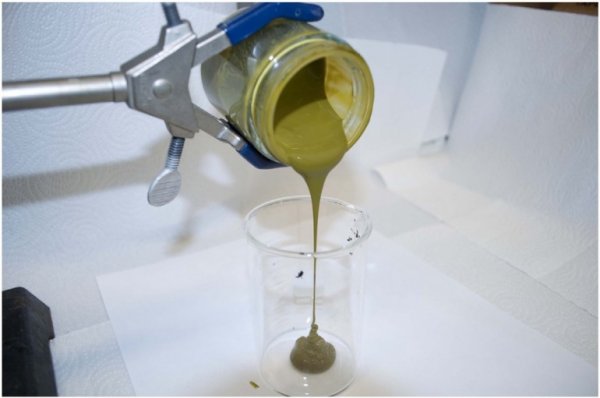This is NEWS Plus Special English. I'm Paul James in Beijing.
The day when planes, trucks and cars are commonly revved up on pond scum may be on the near horizon thanks to a technological advance that continuously turns a stream of concentrated algae into bio-crude oil. From green goo to crude takes less than an hour.
The goo contains about 10 percent to 20 percent algae by weight. The rest is water. This mixture is piped into a high-tech pressure cooker where temperatures hover around 660 degrees Fahrenheit and pressures of 3,000 pounds per square inch to keep the mixture in a liquid phase.
Inside the cooker are "some technology tricks that other people don't have" that help separate the plant oils and other minerals such as phosphorous from the water.
An hour after being poured into the cooker, gravity separates the crude oil from the water as it flows out the other end.
Douglas Elliott, a fellow at the Department of Energy's Pacific Northwest National Laboratory in Richland, Washington, says: "we can clean up that bio-crude and make it into liquid hydrocarbons that could well serve to displace the gas, diesel and fuel that we make from petroleum now."
What's more, a further water-processing step recovers methane-essentially natural gas-from the leftover plant material. The remaining nitrogen-rich water and recovered phosphorous can be recycled to grow more algae.

And finally, on tourism news: Thirteen overland routes between Yunnan Province in southwestern China and neighboring Southeast Asian countries were reopened after eight years of suspension. The move provides a boost for tourism and other businesses in the region.
On hearing the news, local tourism agencies were overjoyed at the prospect of increased numbers of tourists traveling in both directions, while jade traders could not wait to expand their cross-border business.
Under new rules, both residents and non-residents of Yunnan can apply for travel permits to visit towns in Vietnam, Laos and Myanmar.
Applications must be made with exit and entry authorities in five border prefectures and cities.
Travel agencies will be permitted to organize sightseeing visits to government-designated areas for specified periods.
In the past, cross-border travel was a highlight of Yunnan's tourism industry. However, it was suspended due to the booming casinos in neighboring countries.












